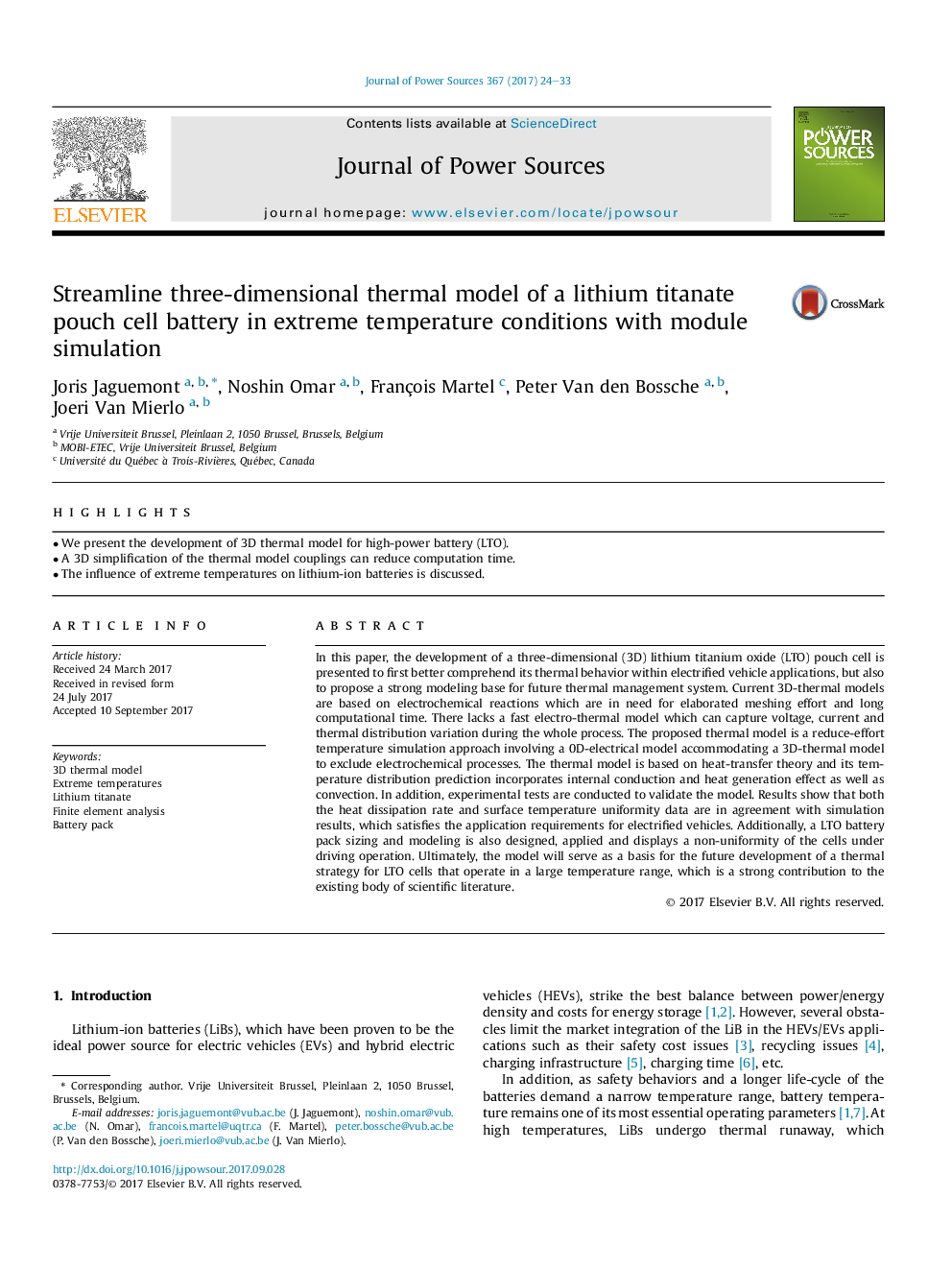| Article ID | Journal | Published Year | Pages | File Type |
|---|---|---|---|---|
| 5148902 | Journal of Power Sources | 2017 | 10 Pages |
Abstract
In this paper, the development of a three-dimensional (3D) lithium titanium oxide (LTO) pouch cell is presented to first better comprehend its thermal behavior within electrified vehicle applications, but also to propose a strong modeling base for future thermal management system. Current 3D-thermal models are based on electrochemical reactions which are in need for elaborated meshing effort and long computational time. There lacks a fast electro-thermal model which can capture voltage, current and thermal distribution variation during the whole process. The proposed thermal model is a reduce-effort temperature simulation approach involving a 0D-electrical model accommodating a 3D-thermal model to exclude electrochemical processes. The thermal model is based on heat-transfer theory and its temperature distribution prediction incorporates internal conduction and heat generation effect as well as convection. In addition, experimental tests are conducted to validate the model. Results show that both the heat dissipation rate and surface temperature uniformity data are in agreement with simulation results, which satisfies the application requirements for electrified vehicles. Additionally, a LTO battery pack sizing and modeling is also designed, applied and displays a non-uniformity of the cells under driving operation. Ultimately, the model will serve as a basis for the future development of a thermal strategy for LTO cells that operate in a large temperature range, which is a strong contribution to the existing body of scientific literature.
Related Topics
Physical Sciences and Engineering
Chemistry
Electrochemistry
Authors
Joris Jaguemont, Noshin Omar, François Martel, Peter Van den Bossche, Joeri Van Mierlo,
